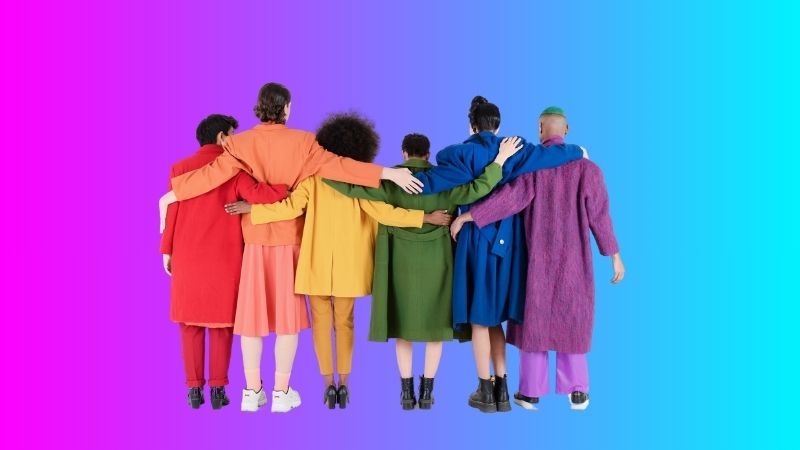OPINION
David Gibson is the Chair of GRAI and a member of the National Carer Strategy Advisory Committee. A former Army Officer and Member of Parliament, he now dedicates his efforts to advocating for vulnerable people.
In his personal life, David enjoys reading books and spending time with his husband and their beloved dogs.
Imagine this: estranged family members suddenly come back into your life, taking control of your affairs, and trying to ‘cure’ you of being gay. They gaslight you, block your friends from visiting, and ultimately force you into becoming a shadow of your true self. Staff begin to call you by a different name and slowly you go back into the closet before dying.
This isn’t some dystopian episode from Netflix’s Black Mirror; it’s a grim reality for many older LGBTI people under Western Australia’s current laws.
This call to action is about safeguarding the dignity, autonomy, and rights of our community, particularly the older LGBTI individuals who have faced a lifetime of systemic discrimination and invisibility.
The Guardianship and Administration Act 1990; drafted during the AIDS epidemic, is desperately in need of reform. For us in the LGBTQIA+ community in Perth, this is not just a legal issue; it’s deeply personal. Yes, we all have different identities, sexualities, genders, bodies, and life experiences. Yet, the one thing we all have in common is that we are growing older, and one day, we might lose the capacity to make decisions for ourselves.

Don’t Risk a Black Mirror Episode
The Black Mirror example I gave at the beginning is a merger of real life examples, and if you don’t want to risk living out that episode then we need to take action now. But we have to recognise that meaningful change takes time.
The recent move towards abolishing the Gender Recognition Board wasn’t an overnight decision. It resulted from years of advocacy, starting with the Law Reform Commission’s Project 108 in 2018 and still wasn’t perfect. Similarly, reforming the Guardianship and Administration Act requires sustained engagement and advocacy if we are to ensure we don’t repeat the mistakes of the past. This is not about chasing headlines; it’s about commitment for the long haul.
GRAI has made a submission to Project 114 – a review of the Guardianship and Administration Act 1990. We have urged the Commission to consider the unique needs of older LGBTI individuals in the reform process. We must collectively emphasise the importance of our voices being heard early and often throughout this journey.
Why This Matters
The Act has largely ignored the unique challenges faced by our community, perpetuating biases that can silence our identities. Any reforms must explicitly acknowledge and protect the rights of LGBTQIA+ individuals. Without these safeguards, the very system meant to protect us could further marginalise us.
Engaging in Law Reform
Often LGBTQIA+ community engagement in law reform is often seen as an optional extra, a tick-box exercise for bureaucratic processes. This must change. The Law Reform Commission will provide future public engagement opportunities on Project 114, and it is our collective responsibility to ensure our voices are included.
Whether we identify as gay, lesbian, bisexual, transgender, intersex, non-binary, or an ally, every voice matters. We must value the diverse views within our community enrich the conversation and strengthen our advocacy.

Redefining Family
One of the most pressing issues within the Guardianship and Administration Act is its narrow definition of family through a biological lens. For many LGBTQIA+ individuals traditional family structures do not apply. The concept of ‘chosen family’ is vital for those who have faced estrangement from biological relatives due to discrimination or misunderstanding. We must have reforms that expand the definition of family to include those who provide love, support, and understanding—essentially, those who are family in the eyes of the individual.
According to new research by the Australian Institute of Family Studies, a survey of almost 6,000 people revealed that 41% of Australians consider close friends or ‘chosen family’ to be part of their family. And LGBTQ+ people were almost twice as likely to rate blood or genetics as not important at all in defining a family compared to others. It is time for our legal framework to reflect this reality. The law should affirm that “family is who the person says is their family,” crucial for protecting older LGBTI individuals in vulnerable situations.
The Risks of Invisibility
Older LGBTI individuals are twice as likely to be single more likely to be single and estranged from their family of origin than their non-LGBTI peers. They are four times less likely to have children and often live alone. This isolation can expose them to increased risks, especially when guardianship becomes necessary.
We cannot allow guardianship laws to empower hostile family members who may seek to undermine the autonomy of LGBTQIA+ individuals. The current Act fails to protect against such abuse, often prioritising biological relatives over ‘chosen family’ in decision-making processes.
The Importance of Supported Decision-Making
The current guardianship framework also prioritises substituted decision-making, often severely limiting an individual’s independence. Reforms must embed supported decision-making practices, ensuring individuals retain as much control over their lives as possible. Guardianship orders should only be a last resort when less restrictive options are not available.
The Royal Commission into Violence, Abuse, Neglect, and Exploitation of People with Disability has stressed the importance of this shift, and it is vital that we heed this call. We must advocate for a system that promotes independence and self-determination, especially for those within our community who have faced multiple layers of discrimination.
Transgender-Specific Concerns
Transgender individuals face unique challenges within the guardianship system that must be addressed in any reform. The Act does not currently safeguard the rights of transgender individuals, putting them at risk of living in a manner that does not align with their true selves. We must demand explicit protections that affirm and respect gender identities in all legal and medical decisions.
This is not merely an academic concern; the vulnerability of transgender individuals in aged care facilities—where they face misgendering and disrespect—must not be allowed to continue unchallenged. This risk is particularly significant for older transgender adults, who often require more frequent and intimate healthcare due to age-related conditions and disabilities.
Collective Responsibility
As members of the LGBTQIA+ community, we must unite to advocate for the reform of the Guardianship and Administration Act. This is a crucial moment calling for engagement, and a commitment to protecting the rights of our most vulnerable members.
Law reform is not just about securing rights; it’s about creating a framework that respects the dignity and humanity of all individuals. We owe it to our community, especially our LGBTI elders, to ensure their voices are heard and their needs are met.
Your Voice Matters
In closing, I urge every member of the LGBTQIA+ community in Perth to engage in this vital conversation. As I said at the outset law reform is a marathon, not a sprint, older LGBTI individuals have been at the forefront of activism and change within the LGBTQIA+ community for decades, and now we need your help.
Let’s not wait until it’s too late. Let’s stand together and change the guardianship system to one that enables a more inclusive environment for all LGBTQIA+ individuals in Western Australia.
Join the fight by sending your details to info@grai.org.au to be updated on how you can help.
A note on terminology: GRAI uses the initialism LGBTI to refer to older people (50+) of diverse genders, sexualities and sex characteristics, as this reflects their lived experience and recognises that some terms like ‘queer’ were used as a slur when they were younger.
GRAI recognises that the initialism does not capture the full diversity of sexualities, bodies, identities, and experiences that exist within our community, however we also recognise the value of the term LGBTI when exploring collective experiences of stigma, discrimination, and marginalisation, and when advocating for LGBTI rights and inclusivity.
GRAI also uses LGBTQIA+/LGBTQ+ when referring to a younger cohort or citing Government documents to align with their terminology




